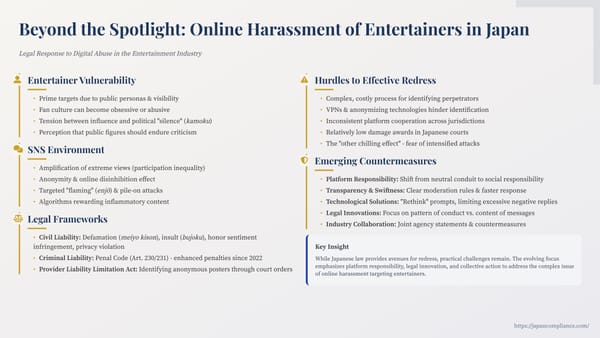TL;DR
* Japan applies a multi-factor test—freedom to refuse work, control, exclusivity, remuneration type, etc.—to decide if an entertainer is an LSA “worker.”
* Recent cases show emerging talent is often deemed employees, while established stars may remain independent contractors.
* Classification drives wage, overtime, social-insurance and training-cost obligations, so
